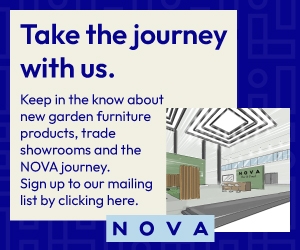No matter how good your products are, some customers are going to want – or need – to return them. So, if you’re selling online, what rules should you lay down for them? parcelLab’s Tobias Buxhoidt reveals all …
If you have any doubts about the importance of a returns policy, think again. Research from the US reveals that 67% of shoppers will check a company’s online returns policy before they make a purchase. Meanwhile, 68% choose websites to buy from based on their reputation – and a good returns experience will certainly boost this.
This makes it vital to have a returns policy that appeals to your customers. But what does that mean? Here are five key features online furniture shoppers are looking for:
1. Clarity and simplicity
The KISS adage (keep it simple, stupid) certainly applies to your returns policy. The simplest tend to be the most effective, as they are easy for customers to understand, while clarity engenders trust because shoppers won’t fear there are any hidden nasty surprises.
Plus, if there’s anything you need customers to do as part of the returns process – such as filling out forms or calling customer services – make sure this is all clearly set out.
2. Generosity
There’s little point creating a clear and simple returns policy if all it says is “we don’t exchange purchased goods once they have been delivered.” For it to work in your favour, your policy should make customers feel like you’re being generous to them – as generous as possible, in fact.
Yes, it’s expensive to collect items of furniture that shoppers have decided they don’t want. But these days, customers expect returning goods they’ve bought online – even furniture – to be free, so that’s what you need to include in your policy if at all possible. And the longer you can give shoppers to return your products free of charge, the better.
Remember, this is a key factor that they’ll use to measure you against your rivals, so where possible make sure your policy is more generous than those competitors’. To reduce the cost of collecting returned furniture for free, plan collections into your delivery logistics so you can collect items when drivers are delivering in the same area.
3. Proactivity
Anticipating that your customers might want to return a product makes the whole process easier for them, so consider adding clear return information with each delivery. This could be inviting the customer to call customer services to plan a collection when a driver is next in the area, or perhaps levying a charge if they would like the item collected sooner.
If you need to charge customers to return goods, then offset this with a discount voucher they can use on their next purchase – it all helps. This also saves your customer service team time and effort, as they are less likely to be contacted and asked how customers should return their items.
4. Convenience
Simplify and speed up the collections process for customers by enclosing the relevant documentation with the delivery, so it can be filled out before collection and signed. This might include key information such as the reason why the item is being returned – from damage or wrong colour to too big or doesn’t fit the decor. This sends out a message of care and efficiency that will impress customers.
5. Trackability
Just like you would with their order shipment, keep customers up to date on the status of their return and their refund by their preferred method of communication – email, text, WhatsApp, etc. They’ll appreciate the care and attention, and pay you back with their loyalty.
This is also a great way to get value from your returns process, because you are engaging with your customers with every email update, which provides an opportunity to increase brand awareness. It also gives you the chance to encourage sales by including details of offers and vouchers, and informing them of new and/or relevant products.
A fair and generous returns policy isn’t a one-way street. It helps you retain customers by generating loyalty, gain customers as your existing ones spread the word about their great shopping experience, and it can offer a new marketing channel to increase sales – all of which makes great retail sense.
Tobias Buxhoidt is the founder and CEO of parcelLab. From its offices in London and Munich, parcelLab connects online retailers with their customers through real-time order monitoring, identifying relevant events and enabling a more personal service, supported by machine learning.








